
Arquivo para a ‘Social Network’ Categoria
Hopes for peace
The Russian elections take place on March 15th and 17th, but Putin’s likely political opponent, former deputy Boris Nadejdin, had his candidacy rejected this Friday, February 2nd by the vice-president of the electoral commission Nikolai Bulaiev, who said reasons for irregularity and which will point out other technical problems.
and 17th, but Putin’s likely political opponent, former deputy Boris Nadejdin, had his candidacy rejected this Friday, February 2nd by the vice-president of the electoral commission Nikolai Bulaiev, who said reasons for irregularity and which will point out other technical problems.
This procedure is routine in Russian elections, and sometimes opponents disappear or are arrested for some reason or minor infraction, dictators control the state machine to forge a democracy that does not exist in practice and nationalist governments also grow.
One of the reasons is that some people on the list were considered dead, Nadejdin joked:
“You and I are the most alive of the living. If anyone imagines that they see dead souls on my subscription lists, that’s not a question for me, maybe they should look for the church, or an exorcist”, according to news on Telegram, a fair election could change the outlook for the war in Ukraine.
Peace in the Middle East is also possible, Israel wants the release of all hostages and Hamas wants an end to the war, reiterating this Saturday (03/02) that the complete withdrawal of Israeli forces from the Gaza Strip are prerequisites for hostage release agreement.
New attacks on Houthi targets in Yemen were carried out by the United States and the United Kingdom this weekend, and the organization, a group of multiple militias, is believed to be armed and financed by Iran, which denies the accusations.
According to the American Department of Defense, there are several militias financed by Iran, including Hezbollah and the Houthis, after two Americans were killed in the interception of a boat carrying weapons to rebels in Yemen, the American Department of Defense released a photo (above) .
There are always circumstances and situations that can end a war, it is necessary no limit condemning the power of tyrants and warmongering governments so that the world moves towards peace.
Power and respect
Byung Chul-Han in his book The Swarm, clarifies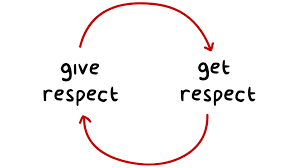 that only respect has symmetry, that is, it can make the relationship one of mutual respect and recognition of what is good for everyone.
that only respect has symmetry, that is, it can make the relationship one of mutual respect and recognition of what is good for everyone.
This is one of the greatest values of social action, solidarity with those who for some reason made a mistake or had a deviation in their behavioral action, being allowed to return to social life and the hope of a new life.
It is necessary to experience something new, to resume a respectful relationship with the Other, and to social reintegration. This does not mean tolerating what is unacceptable, whether morally or socially, but having a new life experience of resocialization and reorganization of life. guys.
Power, when exercised only to repress and combat what is socially and morally reprehensible, should not be absent, it would be an omission and disorganization, but every human being and every person can and should be allowed their resocialization and social reinsertion.
Social life has deteriorated not because people make mistakes, this is typical of social and human life, but because resuming a respectful relationship, being patient in listening to the Other and allowing them to change is giving them hope and conditions to have a new experience. and respect.
The culture of exclusion, hatred and lack of forgiveness leads to a hostile society, the end of fair social relations and the path that provides the possibility for greater equity and justice for all. Exclusion thickens the broth of marginality, the culture of disrespect and gives rise to all types of polarization and confrontation.
A society without a return to a balanced social life, fair in all senses, including moral and economic, makes the development of a culture of peace and fraternity possible.
There is no way back, just imposing rules and concepts, often dubious and without an adequate practical reason (the Greek phronesis), becomes an ideological direction that is as hostile as what it condemns: authoritarianism and ignorance.
There is a lack of common sense, practical reason in all areas of society, from political to religious, the practice of distrust, discredit and disrespect for different thoughts, makes the field of authoritarianism increasingly present and the field of democracy and equality distant.
The practice of daily attitudes of good, of patient listening is the path for those who truly desire a more fraternal and supportive world, the practice of aggression and hatred does not lead to a real possibility of returning to the path of war and confrontation.
Those who say they follow Love and solidarity need to get out of words and into actions.
Aretê and righteousness
It is necessary to understand that in ancient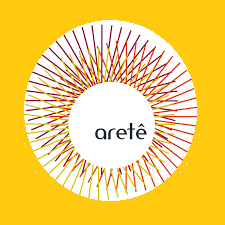 philosophy, mainly in Aristotle and Plato, the objective is to develop a philosophy for the polis, education, the politician (for Plato he must be a philosopher in the sense of excellence of thought) and for Aristotle the citizen, considering that only free men were eligible for citizenship.
philosophy, mainly in Aristotle and Plato, the objective is to develop a philosophy for the polis, education, the politician (for Plato he must be a philosopher in the sense of excellence of thought) and for Aristotle the citizen, considering that only free men were eligible for citizenship.
Thus aretê translated as virtue, is also a characteristic of a particular excellence, but it is not its translation as proposed by some interpreters, the word that Aristotle uses for this is phronesis, a practical theoretical thought that leads to special wisdom.
We cannot assume that men who do not have a private life of “excellence” and live it wisely are men capable of public exercise, attachment to power, money and the vices of contemporary life, done in the name of freedom, inhibit the ability of the politician.
We no longer talk about the moral field, it is not about theft and lies, the name given today is fake news due to its publication by the media, and the lie may have a short leg, but its action confuses social life, misinforms and leads to other vices, in addition to personal fanaticism.
It is also important to address the issue of freedom, we can do whatever we want, but we cannot ignore the consequences, an immoral and dishonest life does not lead to a fair and balanced social life, other vices will accompany greed and power for power’s sake.
So it doesn’t take long for those who see freedom in this mistaken sense to pay with deformations in their personal lives, involvement with anti-social forces, for example, from trafficking to deaths and human trafficking, like those who have already gained publicity.
It is difficult in this context of a mistaken vision of freedom, they talk about righteousness, good customs, from personal to social, empathy and solidarity, what exists is demagoguery only for the immoral exercise of politics, power and public money.
Culture, intelligence and wisdom
The problem of contemporary culture has already been addressed in several posts, psychiatrist Anthony Daniels who signs his books as Theodore Darlrymple (What We Made of Our Culture, Anything Goes, The Knife In, etc.), intelligence continues to be questioned now with the scapegoat of the digital universe, but whose crisis has been going on since the beginning of the last century (neopositivism, neologicism and the simplistic view of reality), now takes on the contours of a lack of balance, common sense and even some sense of humanity.
been addressed in several posts, psychiatrist Anthony Daniels who signs his books as Theodore Darlrymple (What We Made of Our Culture, Anything Goes, The Knife In, etc.), intelligence continues to be questioned now with the scapegoat of the digital universe, but whose crisis has been going on since the beginning of the last century (neopositivism, neologicism and the simplistic view of reality), now takes on the contours of a lack of balance, common sense and even some sense of humanity.
Edgar Morin explains this lack of wisdom through the disciplinary and segmented view of reality, a complete absence of a complex and broad vision that gives rise to what he calls polycrisis, however it is important to question what wisdom is.
In the Greek sense, it is not private knowledge in the sense of morality, but public and social, which aims to minimize exacerbations of the self’s egocentric impulsiveness, when placed in the perspective of the work of art, it reaches a level of universal, good and beautiful principle.
The Greek word as “friend of knowledge” or knowledge is reductionist, one of the Jewish words for wisdom is chokmah or tushiya which mean wisdom that leads to practical success, it seems more appropriate to the current reality, because it is wise if it has practical meaning for life of each person and of humanity as a whole.
This is in good agreement with the Greek word proposed in terms of a virtue, phronesis, which is usually translated as prudence, a term that the contemporary philosopher Hans-Georg Gadamer adopts but translates as serenity, judging it to be closer than prudence.
Those who claim merely objective knowledge, with an idealistic flavor, are in reality impractical, indicating a lack of wisdom, they become impulsive and active (in the sense of the Vita activa that Hanna Arendt and Byung Chul Han claim), typical of Western society. tiredness.
We want quick, consumerist or media-based knowledge and it has nothing or little to do with wisdom, which requires thought, contemplation and non-immediate thinking about facts.
Current society has deviated from practical knowledge because it demands intelligence and culture without realizing the deep connection it must have with wisdom that comes from a deeper reflection on the Being, things and the essence of life.
We defend peace, but we do not avoid catastrophe, war, hatred and dialogue and respect for those who are different, there is no practical wisdom in this type of contemporary thinking.
Resistance or catastrophe
So says the article by the century-old thinker and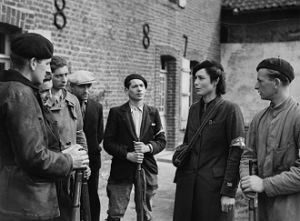 educator Edgar Morin, in the article for the Italian newspaper La Reppublica, we are “heading towards probable catastrophes”.
educator Edgar Morin, in the article for the Italian newspaper La Reppublica, we are “heading towards probable catastrophes”.
And he asks: Is this catastrophism? This word exorcises evil and gives an illusory serenity. The polycrisis that we are experiencing across the planet is an anthropological crisis: it is the crisis of humanity that cannot become Humanity, the word polycrisis has already been used by the author in other contexts: that of thought, the ecological and social crisis, now he adds one anthropological, other authors say the age crisis of the anthropocene.
He, like other authors, pointed to this crisis, but believed that a change of direction was possible, now it seems too late, “we don’t know if the world situation is desperate or really desperate”, it doesn’t mean with or without hope, like or without despair , we have to move on to a Resistance, and now different from that of the 2nd. war in which France was occupied by the Nazis (photo), now the world is occupied by polarization and hatred.
The facts and situations drag us into an unprecedented war, “we are condemned to suffer the struggle between two imperialist giants with the possible warlike intervention of a third”, as the author says, “the first resistance is that of the spirit, which must be capable of resisting the intimidation of all the lies spread as truth and the contagion of all collective drunkenness”, calls for a spirit of sobriety and of those who believe, of faith and hope.
Today we must know how to resist hatred and contempt, “it requires the effort to understand the complexity of problems without ever giving in to a partial or unilateral vision. It requires research, verification of information and acceptance of uncertainties” wrote Morin.
This “resistance also implies the coordination of associations that are dedicated to solidarity and the rejection of hate. Resistance would thus prepare young generations to think and act through the forces of union, fraternity, life and love.”
It’s not about finding justice in some kind of hate, but hating the hate itself, it’s not about cheering for this or that side of the war, but making war on war itself.
The resistance that Morin calls for must involve all people of good will and solidarity among those who truly know the consequences of such a war, beyond speech.
The resistance of the spirit of humanity
Victor Serge wrote “Midnight of the Century” in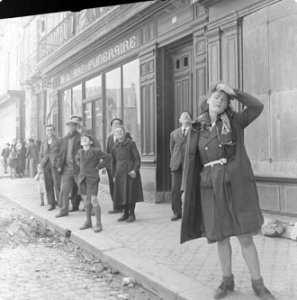 1939, in the middle of the 2nd. world war, now in an article published in La Reppublica, on 24-01-2024, the French sociologist Edgar Morin published an article: “The resistance of the spirit” about the crisis of current wars.
1939, in the middle of the 2nd. world war, now in an article published in La Reppublica, on 24-01-2024, the French sociologist Edgar Morin published an article: “The resistance of the spirit” about the crisis of current wars.
The war in Ukraine mobilized economic aid from much of the world, while on the Russian side, economically weakened by the sanctions imposed by Western nations, it strengthened both technical-scientific development and the bloc formed with China.
Serge, an anarchist by origin, who supported the Russian Revolution, saw it bureaucratize and persecute all real and imaginary enemies in the Stalinist period, described in “The Great Terror” (1934-38), years before describing the horror to midnight, and whatever you say about today.
A new focus emerged after a massacre of civilians by Hamas on October 7, 2023, followed by deadly Israeli bombings in the Gaza Strip.
In Morin’s analysis, which has been developed for some time, the progress of knowledge occurred by creating barriers in disciplines that are increasingly closed in their object, which leads to a new type of almost blind thinking, linked to the dominance of calculation in a technocratic world, the progress of knowledge does not consider the complexity of reality and becomes blind.
The result of a lack of clarity and understanding of human life exposed by the ease of access to all life on the planet, without its understanding, has led to dogmatism and fanaticism, and a crisis of morals while hatred and idolatries spread.
Recalling the years of Nazi occupation in France (photo Carentan France, June 1944 From the LIFE Magazine Archives), in which Morin himself was a member of the French Resistance, he now evokes a resistance of spirit that avoids almost desperate or truly desperate action, and maintains hope through Resistance.
This resistance implies safeguarding or creating an oasis of communities endowed with a say in relative autonomy (agroecological) and social and solidarity economy networks.
This action also implies associations that are dedicated to solidarity and rejection of hate.
Change of route and power
Today is the day of the city of São Paulo, and the day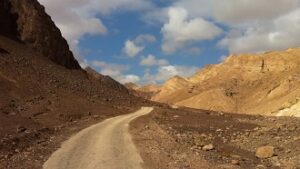 of the apostle Paul is also celebrated by most Christians, not a coincidence as the name of the city was given after the apostle, during the time of Portuguese colonization in Brazil.
of the apostle Paul is also celebrated by most Christians, not a coincidence as the name of the city was given after the apostle, during the time of Portuguese colonization in Brazil.
His name was Saul of Tarsus, a city in Cilicia where he was born in 5 AD and was a highly educated Jew who fought Christianity as a Christian sect, being one of those responsible for the death of Stephen, the first Christian martyr.
It happened that on the way to Damascus, through a horse falling, a figure used to this day to indicate people who change their mentality and route, he had a mystical revelation and became blind, and in this vision he was instructed to go to meet Ananias, and his view has been restored.
From then on, he is called Paul and from then on he will be responsible for taking the apostolate to the Gentiles, as those who were not Jews were called, since these were the people chosen by God, so Christianity leaves its Jewish limits and arrives even Greeks, Romans and other people who lived in the Roman Empire.
His elaboration of thought will then go beyond the limits of Jewish customs, although with some controversies such as the need for circumcision, he will be the first and important theologian of Christianity, having influenced thinkers such as Augustine of Hippo and Thomas Aquinas, important for Christianity, but also for philosophy.
Paul will understand that this is not a fight for human power nor a fight against the domains of temporal power, but rather the fight against the earthly mentality that does not reach values beyond power, wealth and human passions.
Without Paul, Christianity probably would not have left the Jewish domains, nor would it have reached Greece, Rome and the entire Roman Empire and then the entire world, despite the persecution of local powers it expanded in the world of people and took root within cultures.
The civilizing and human route cannot aim only at taking power and submitting to the values of this power, without a solid human base, with timeless values, power is confined to the dimension of weapons and oppression.
Peace, harmony between peoples, respect for cultural diversity cannot be subjected to the power of weapons and oppression, the lack of freedom and the absence of dialogue and respect.
The political question and thinking
The state model, as seen in previous posts,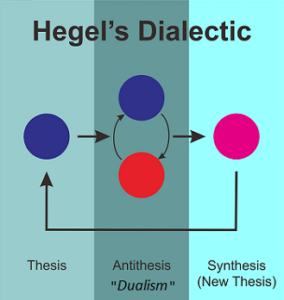 coming from classical antiquity, was profoundly transformed by contractualism (Hobbes, Locke and Rousseau) and Hegel’s state thought, creating categories such as Philosophy of Spirit and a complex thought based on the triad that develops a cyclical path, going through contradiction of opposites (thesis and antithesis) and synthesis that generates new opposites.
coming from classical antiquity, was profoundly transformed by contractualism (Hobbes, Locke and Rousseau) and Hegel’s state thought, creating categories such as Philosophy of Spirit and a complex thought based on the triad that develops a cyclical path, going through contradiction of opposites (thesis and antithesis) and synthesis that generates new opposites.
It assumes that the State has superior ethics and laws that are only objective if they are complied with, as it is only formal (that is, it remains idealistic) and the Constitution supposedly results from the spirit of the people and must be thought of as in constant formation.
The State, in its theoretical assumption, exists for itself by virtue of a natural need, which for it is “divine”, since this need, to be founded, does not need the consent of individuals, nor any contract, in short, it is an absolute power.
His theory aims to represent a finished thought, which aims to be the limit of philosophy itself. Here we can understand the paradoxical phrase of Marx (a Hegelian) who states that philosophers must now change reality, creating the state “pure” dreamed of by Hegel, would be an end to philosophy, a system that undoubtedly began with Plato and had politics as its objective (the training of citizens for the polis).
This ultimate thought, states Hegel, “this science is the unity of art and religion. Therefore, philosophy determines itself in such a way as to be a knowledge of the necessity of the content of absolute representation” (HEGEL, 1995, p. 351).
In his youthful writings, Hegel wrote his central theme on theological issues, because the future Berlin professor formulated countless reflections on Christianity, always having Greek culture as the basis for the ideal of political organization, even comparing Jesus to Socrates, So these theories are older than we think.
In the third volume of the Encyclopedia of Philosophical Sciences, he rehearses what he later deepens in his publication of Philosophy of Law, in 1821, a study of the State (ethics) that differs from the time because it resumes a teleological conception of the relationship between universal-particular, its philosophy and elaboration as it uses the Law is still ideal.
As one of his followers, Hegel was strongly influenced by Friedrich Wilhelm Joseph Schelling (1775-1854), who tried to establish a relationship between the real-ideal of political conception, Marx will criticize these “more idealistic” philosophers, calling himself neo-Hegelian, a philosophy from earth “to heaven”, that is, an inverted idealism, but it still is.
The idea that this political theory could approach ontology comes from a simplism where Being is confused with thinking (let us remember that this is Cartesian: I think therefore I am) and thus its ontology would be that Being, understood by the dimension of thought, absolute identity, seeks to overcome the object-subject, being-thinking and in this last relationship it is necessary to see not a dualism, but a separation, since in classical ontology being is studied as they are and not with their particular properties and facts, it is return to your metaphysical essence.
HEGEL, G. W. F. (1995) Encyclopedia of Philosophical Sciences V. III. Brazil, São Paulo: ed. Loyola.
Modern sophistry
In addition to the crisis of thought, the social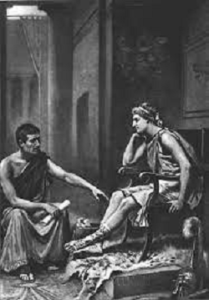 crisis that we have not been able to resolve in more than a century of a spectacular development of forces and technologies that interfere with nature and should help man and not destroy nature, perhaps the most common civilizational crisis is in politics, I use it perhaps because the thought that underpins it has been lost.
crisis that we have not been able to resolve in more than a century of a spectacular development of forces and technologies that interfere with nature and should help man and not destroy nature, perhaps the most common civilizational crisis is in politics, I use it perhaps because the thought that underpins it has been lost.
The model of modern society began in ancient Greece and Plato refers to this model mainly in his work “The Republic”, however the initial clash is against what was used as a form of power in his time: sophistic thought.
It is necessary to define the sophist so that he is not confused with the philosopher or the politician, Plato starts from the assumption that no man is given the power to know all things, which would make him a god, and in the false propaganda of the Sophist, he could only teach an appearance of universal science, and here he finds the difficulty of establishing what is the falsehood and the truth of a deceptive speech, as is present in any speech.
This difficulty between truth and falsehood is one that encourages an ontological discussion, thus establishing an art of illusion, it is necessary to investigate what are the parameters that delimit it and what provides this power of illusion, in addition to determining which its object and its relationship with what is imitated, so the sophist is not a layman, he does have an art that must be justified as illusory and harmful when one intends to formulate a critique and establish the ideal principle or norm to educate oneself.
This is the modern sophistry, what it is to educate, now it is not just about Piaget, Skinner, Constructivist, Vygotsky or any of the “modern” learning theories, but rather the problem of fragmentation and vulgarization of knowledge, where even Basic questions in mathematics, geography or literature, for example, are completely ignored in teaching.
Two modern sophisms, just to give an example, of apparently logical arguments that lead to mistaken conclusions: “Those who don’t work have a lot of free time”, the idea of using the power of the knowledge of the crowd led many people to invest “idle time” in social media activities, virtual games that are slot machines, etc., another spiritual one is one that imagines a God or an energy that creates fortunes and automatically resolves complex things in life, the logic is “If God is love and I love God, my life is resolved”, effort, dedication and personal work must come together with this attitude and this means having attitudes compatible with a dignified religious life: honesty, fraternity with those who depend on us and resilience in times of difficulty , which are normal in life.
When Plato created the Republic, he did not forget the virtues of the public man and all philosophy worked in this direction, but the mistakes in thought (philosophy) and in society (or politics) are due to the development of ancient thought in an always true direction, despite logic, because instrumentalized logic can be sophistry.
War in Balochistan
I believe that most people ignore the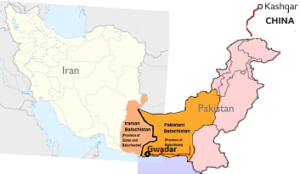 existence of this region, which makes up 44% of Pakistan’s territory, it was bombed by Iran last week (16/01), in response Pakistan bombed Iran, starting a conflict that could escalate between the countries, in the same week that it bombed targets in Syria and Iraq.
existence of this region, which makes up 44% of Pakistan’s territory, it was bombed by Iran last week (16/01), in response Pakistan bombed Iran, starting a conflict that could escalate between the countries, in the same week that it bombed targets in Syria and Iraq.
According to Pakistan, the missiles on Thursday (18/1) targeted “terrorist hideouts” and killed 9 people, all of this means that the Islamic Revolutionary Guard Corps army has taken action, as tensions between the Houthis and the US grow. in the red sea.
Something little publicized, but which is strategic in the world economy, is the economic route that starts in Gwadar in Balochistan to Kashgar (China), China has invested in land routes.
The region of Baluchistan (map) has more than 12 million inhabitants, is rich in gold ore and is considered a kind of “lawless land”, but more than economic interest, what the war awakens there is the alert and the readiness of the Islamic Revolutionary Guard Corps that signals against Israel in tension in the Gaza Strip.
The war in Ukraine also worsens tensions, the harsh rhetoric of Macron’s French government, which stated that “Russia cannot win the war” hardens NATO tensions with harsh attacks on several Ukrainian cities causing chaos in the country.
The narratives seek to justify to the right or to the left what is obvious: the civilian population suffers, on a larger scale the world population if a recession comes, relations from economic to social worsen and peace becomes increasingly distant.
There are no justifications for a “just war”, if in the past rigid territorial divisions and the “wealth of nations” (a classic by Adam Smith, which Marx read to write Capital) were a reality, today only the justification of power and of greed justify neocolonialism.
One breaks with the truth, with common sense and even with reason, in order to justify a logic of power, as Plato said in antiquity: “If a city of good men were to arise, it is likely that people would fight to escape. of power, as we now struggle to obtain it, and it would become evident that, in truth, the authentic ruler must not aim at his own interest, but at that of the governed” (Plato, The Republic).

